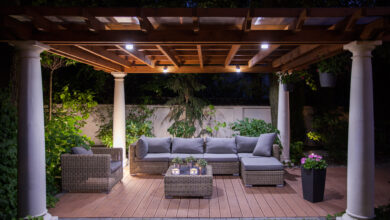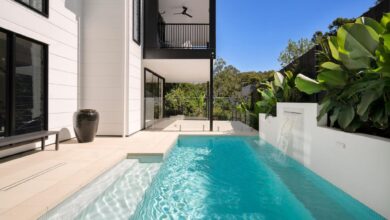Analysis of Residential Cooling Systems
Summer is swiftly approaching, and with it comes the need for reliable and efficient cooling systems to keep our homes comfortable. In Garden City, Long Island, and Deer Park, residential cooling systems have become an essential part of everyday life. Whether you’re looking to upgrade your existing system or install a new one, understanding the various options available can be overwhelming.
When it comes to residential cooling systems, there are several popular choices:
Central Air Conditioning Systems: These systems circulate cool air through a series of ducts and vents installed throughout the home. They consist of an outdoor condensing unit and an indoor evaporator coil, providing whole-home cooling.
Ductless Mini-Split Systems: These systems are a great option for homes without existing ductwork or for adding cooling to specific rooms. They consist of an outdoor compressor unit and one or more indoor air handlers, allowing for zoned cooling and temperature control.
Window Air Conditioners: A more affordable option, window units are compact and easily installed in a window or wall opening. They are suitable for cooling individual rooms or small living spaces.
Factors to Consider When Choosing a Residential Cooling System
When selecting the right cooling system for your home, there are several factors to consider:
Size and Layout of Your Home: Proper sizing is crucial for efficient cooling and energy savings. The system should be matched to the square footage and layout of your home.
Energy Efficiency: Look for systems with high energy efficiency ratings, such as SEER (Seasonal Energy Efficiency Ratio) or EER (Energy Efficiency Ratio), to save on utility costs.
Noise Level: Some systems can be louder than others, so consider the noise level, especially if the outdoor unit will be near living areas or bedrooms.
Budget: Upfront and operating costs can vary significantly among different cooling systems. Determine your budget and weigh the long-term savings of a more efficient system.
Pros and Cons of Different Residential Cooling Systems
Central Air Conditioning Systems
Pros: Whole-home cooling, quiet operation, integrated with existing ductwork.
Cons: Higher installation costs, requires ductwork, potential for energy waste if not properly zoned.
Ductless Mini-Split Systems
Pros: Zoned cooling, energy-efficient, easy installation, no ductwork required.
Cons: Higher upfront costs, visible indoor units, potential for some noise from outdoor compressor.
Window Air Conditioners
Pros: Affordable, easy installation, suitable for small spaces.
Cons: Limited cooling capacity, noise levels, security concerns, and potential for drafts.
Maintenance and Energy-Saving Tips
To ensure optimal performance and energy efficiency, regular maintenance is essential:
- Change or clean air filters regularly to improve airflow and reduce energy consumption.
- Schedule annual professional tune-ups to prevent breakdowns and maintain efficiency.
- Use programmable thermostats to adjust temperatures when you’re away or sleeping.
- Seal air leaks and properly insulate your home to reduce cooling load.
- Shade windows with curtains or blinds to block direct sunlight.
FAQs
Q: How often should I replace my residential cooling system?
A: Most cooling systems have a lifespan of 10-15 years with proper maintenance. However, if your system is becoming less efficient, requires frequent repairs, or is over 15 years old, it may be time to consider a replacement.
Q: Can I install a residential cooling system myself?
A: While window units can sometimes be self-installed, central air conditioning and ductless mini-split systems require professional installation by licensed HVAC technicians to ensure proper sizing, refrigerant handling, and adherence to local building codes.
Q: How can I determine the right size cooling system for my home?
A: A professional HVAC contractor will perform a load calculation, considering factors such as square footage, insulation levels, window area, and local climate conditions, to determine the appropriate size and capacity for your home.
Q: How can I improve the energy efficiency of my existing cooling system?
A: Regular maintenance, replacing air filters, sealing air leaks, proper insulation, using programmable thermostats, and upgrading to a higher-efficiency system can all contribute to improved energy efficiency and lower utility costs.
When it comes to residential cooling systems in Garden City, Long Island, and Deer Park, there are various options to suit different needs and budgets. By understanding the pros and cons of each system and considering factors like energy efficiency, noise levels, and budget, you can make an informed decision that will keep your home comfortable throughout the hot summer months.



